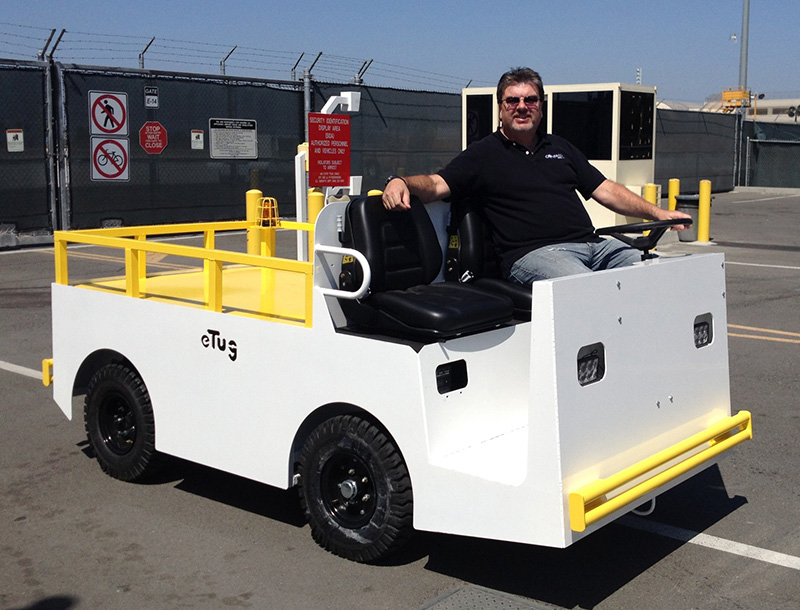Compass eGSE
In 1998 after 12 Years of working for Mercury GSE, Compass GSE was formed and began operations out of Long Beach International Airport. We started consulting and brokering GSE for various clients for many years. During this period we established many contacts, built our our fleet of GSE and offered rental units for several customers. During our growth we continued to successfully provide sales and rentals of new and used ground support equipment worldwide. Now with over 30 years in the Ground Support Equipment business, we offer complete airside solutions including sales of new electric GSE (eTug) and Cobus 3000 airfield buses for remote gate operations. We are very familiar with all aspects of airside operations and the GSE required to support the aircraft operations. In 2006, our company started production of the eTug electric baggage tractor. The design of the eTug comes from being a ramp agent operating gasoline and diesel tugs every day. It comes from a thought process of practicality of the environmental future in mind with the other eye on cost - We got the balance right !!. We offer an array of products and services, please call us with any specialty items you might require, we will investigate the practicality of your item for production. While cliche, we are a small hardworking company who often think completely out of the box. We would be a great partner to compliment your GSE demands. Our services also include the sales of your surplus GSE for best market value. In closing, small companies have fewer bosses, faster decision making abilities and lower overhead. This means lower prices for you and fewer mistakes made and faster on-time delivery of your product. We are a great company and please to receive your consideration on your next GSE purchase.

Neil Bennett - GSE Specialist and Owner, Compass eGSE
My father was an aircraft mechanic in the British Royal Air Force for many years and later worked for Laker Airways, British Caledonian and British Airways. I was exposed to aviation my whole life. At 16 years old, I moved with my parents to Accra, Ghana where my father worked as an outstation engineer for British Caledonian. While learning to drive, I went to work with my father learning to service the British Caledonian DC-10 aircraft. Being on the ramp everyday provided an extensive working knowledge of all types of ground support equipment. Yes, no security and a 16 year old with no training driving and operating GSE around a DC-10, the good old days !!
At 18 years old, I moved with my parents to Los Angeles, California. As a seasoned ramp agent, I quickly gained employment with Mercury Air Group; then the largest ground handling company in the USA. I moved up rapidly, working as a ramp agent, ramp supervisor, ramp manager (managing over 50 employees), Ground Support Equipment (GSE) Sales Agent, GSE Rental Manager, Director of Fleet & GSE and at 28 became Vice President Sales for Mercury GSE. During my tenure in GSE sales and rentals, I was involved in the following projects:
- Introduction of first towbarless aircraft tractors in the USA
- Introduction of Cobus to the United States - First 15 units sold to LAX
- Introduction of Australia’s TASLU military cargo loader to the Canadian and US Air Force
- Introduction and testing of wireless data transmission from a piece of GSE to a supervisor’s computer in the office. CDPD (Cellular Digital Packet Data)
- Provided GSE for the brand new MD-11 aircraft in Phoenix AZ during flight testing
- Supervised a GSE operation for the transportation of a Killer whale to Sea-World in San Diego, CA.
- Involved in many movie shoots including the TWA highjacking movie to a TV series called Mancuso FBI.
In 1998, I left Mercury GSE to form my own business, Compass GSE.
In 2007, I recognized a movement to “Go Green”. With the anticipation of rising fuel costs, I personally designed and developed the “eTug” electric baggage tractor (eTug TM). With environmental mandates forcing change to alternate fuel vehicles and fuel prices continuing to rise, many believe the obvious first choice is electric. Electricity is readily available at every airport and because the eTug is charged using a standard wall outlet, no additional infrastructure is required.